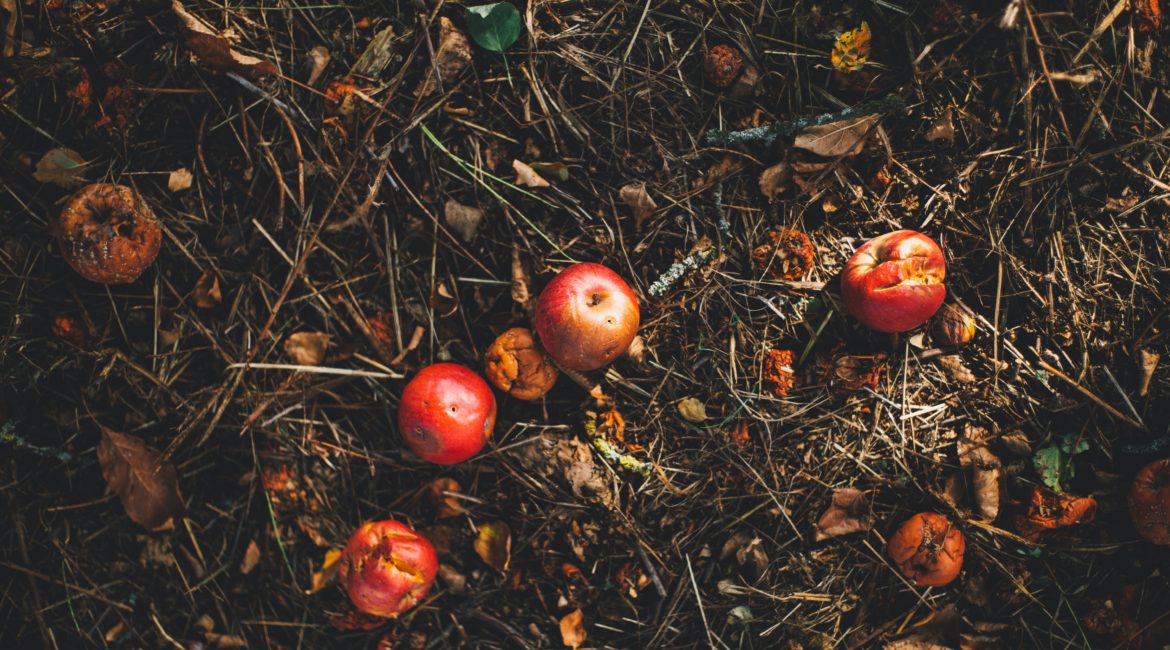Food waste is a huge problem.
In the US alone, it is estimated that we throw away about 30-40% of the food that we produce. You heard that right. 30-40%.
In a world where so many people struggle to get food on the table, and rising food costs are only making that more challenging, wasting so much usable food feels unconscionable.
Like all global issues, there are deep systemic problems with the way we produce food. However, that doesn’t mean that we are helpless as individuals. We can make small choices every day to ensure that we are participating in the food industry in a responsible way. Read on to find out how you can make a difference.
Meal Plan
One of the best ways to avoid personal food waste is to make a plan when it is time to go to the grocery store. Planning out what meals you are going to make throughout the week is a great way to ensure you are only buying what you need.
Have an unexpected dinner out? Move one of your meal plans for the week into the next week.
Store Your Food Properly
Many people find themselves with produce that goes bad faster than they can eat it. Oftentimes, this is due to improper storage, rather than the produce itself.
Certain vegetables like peppers, zucchini, and lettuce will rot faster when exposed to excess moisture. A good trick is to wrap them in a paper towel and then store them in a bag in the crisper. While you can certainly reuse plastic bags for this, we recommend ditching plastic as much as possible. Reusable mesh produce bags are a great eco-friendly investment that will keep your food fresh for the whole week.
It’s also important to be aware that some produce actually lasts longer when not refrigerated. Things like avocados, tomatoes, stone fruit, apples, onions, and potatoes can all be left on the counter and stored at room temperature.
Reuse Scraps
When it’s time to clean up the kitchen don’t toss those onion peels and carrot tops into the garbage! Instead, you can use them to help make another delicious meal.
Most food scraps can be saved to be repurposed into things like homemade vegetable broth. Things like pepper cores, wilting herbs, potatoes, onion, and garlic skins can all be frozen in a large Ziploc bag. When the bag is full, simply dump the contents into a large soup pot. Cover the scraps with water and allow to simmer for 2-6 hours.
Use a large colander to separate the scraps from the broth. The broth can be stored in the fridge for up to a week, or frozen for a few months.
Preserve Your Food
Back in the day, preserving food was a necessity. These days, we have access to technology that allows us to have any type of food we want, during every season. This might sound like a good thing, but it has its drawbacks.
Shipping food across the country creates a lot of waste. Additionally, having access to all sorts of food whenever we want may be causing us to not care about wasting it as much. After all, why would we get excited about asparagus season, or berry season, when we can simply go to the store and buy it in the dead of winter?
Instead, we recommend taking seasonal foods and finding a way to preserve them all year long.
Preserving your own food is an art and a science. There are thousands of great books on the subject and informative video tutorials. Canning and pickling don’t have to be intimidating. It is a great way to make sure food doesn’t go to waste and can be enjoyed for years to come.
Compost
When you toss food in the trash, it gets sent to the landfill in a plastic bag. Disposed of that way, it can take years to break down and biodegrade. In a landfill, that food waste never has a chance to return to the soil and add nutrients back into it.
An easy solution is to start composting your food waste. Many cities run a composting program. You can fill a special bag with food scraps and the city will compost it for you.
Alternatively, you could start your own compost pile in your backyard. There are all sorts of designs for compost bins, but we recommend beginners start out with a pre-made one.
Buy Small
US grocery stores throw away roughly 30% of the food they receive. One city alone can easily generate over 16 billion pounds of food waste from grocery stores.
Clearly, this is a problem. One of the best ways you can change this is to vote with your dollar. Buying food from small farms and vendors is a great way to make sure you aren’t supporting the wasteful practices of grocery stores.
Farmer’s Markets are a great way to get to know the farmers in your area. In addition to supporting a more sustainable agricultural model, the individual farmers know a great deal about the products they are selling. You’re likely to learn something new, each time you visit!
If a Farmer’s Market is not convenient for you, consider joining a CSA. A CSA – also known as Community Supported Agriculture – is a bit like a subscription service. For a monthly fee, a local farm will provide you with a rotating selection of produce, meats, and dairy products. While you don’t always get to select exactly what will go in each box, you will get exposed to the freshest products available, and get to try new things as well.
Rethink What Good Produce Is
Lots of the produce that gets thrown away isn’t expired or rotting. No, much of it gets tossed because it isn’t pretty.
Yup, you heard that right.
Grocery stores often dispose of produce that is misshapen or has an off coloring. They are counting on the fact that customers will choose the prettiest piece of produce that is displayed. They aren’t wrong, either.
Changing our views of what fresh produce looks like can be a powerful step in the right direction. After all, our food isn’t a box of Kraft mac and cheese. It’s not supposed to look exactly the same, every time.
Companies like Imperfect Foods seek to solve this problem. They offer a grocery delivery service, offering produce with cosmetic irregularities at a discounted rate.
Get Involved
While we cannot discount the power of the individual, it’s important to realize that food waste is a national issue. Getting involved with an organization that fights against this, is a great way to help fix the problem.
Organizations like Feeding America work to reduce world hunger by fighting against wasteful food practices. They are always looking for volunteers and donations, across the country.
How do you work to prevent food waste in your home? Share with us in the comments below.






